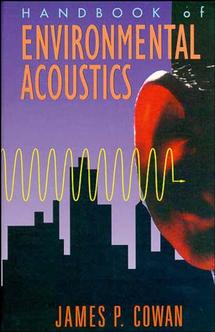Because environmental acoustics has a complex mathematical basis,it is often difficult to determine whether acousticalrecommendations are valid. Handbook of Environmental Acousticssimplifies this decision-making process and provides easy-to-followexplanations of acoustic terminology, noise control design, andregulatory noise issues. The book clarifies key aspects ofenvironmental noise in basic language, covering:<br> * Common noise sources–including the risk of exposure to commondaily environmental noise sources<br> * Current noise regulations, guidelines, andstandards–illustrating all key points<br> * Acoustic terminology and environmental noisedescriptors–providing a foundation for understanding noiseissues<br> * Effects of noise on people and animals–emphasizing theimportance of restricting noise exposure<br> * Relevant noise rating methods–clarifiying the use of noisemetrics<br> * Construction and building code requirements–explaining currentrequirements and featuring tips on how to avoid privacyproblems<br> * Measurement considerations–demonstrating standard methods andoffering practical advice on how to ensure proper measurementprocedures<br> * Noise control designs–detailing source-path-receiver systems andnoise control fundamentals<br> In addition to traditional noise control methods, new areas, suchas active noise control, sound intensity measurement, and diffusivedesigns, are explained. A sample municipal noise ordinance helpsthe user to draft an ordinance tailored to the needs of aparticular community. Avoiding complex mathematics and analyses,Handbook of Environmental Acoustics is a user-friendly manual forurban planners, municipal officials, engineers, attorneys,industrial hygienists, architects, environmental professionals, andstudents in these fields.
Environmental science, engineering and technology
Handbook of Environmental Acoustics
₹11,426.00
This book is currently not in stock. You are pre-ordering this book.

